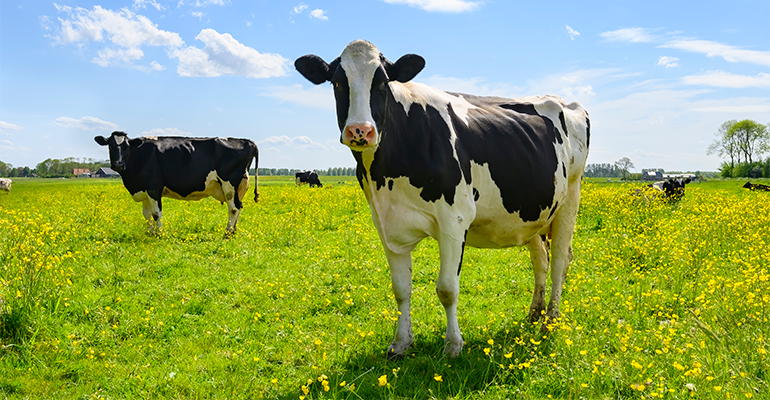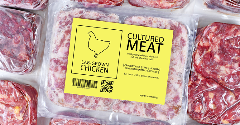News
F&B industry hit with fresh greenwashing claims
26 Feb 2025The food and beverage (F&B) industry is under fresh scrutiny amid claims of greenwashing, with Arla the latest company in the firing line.

Consumer trust is being eroded by practices such as making false or exaggerated claims, using misleading labels and certifications, and being ambiguous or vague, which are among the most common greenwashing tactics used by the F&B industry.
Now, a report released earlier this month by Changing Markets Foundation and Greenpeace Nordic has accused Denmark-based dairy giant Arla of failing to meet its environmental pledges.
Arla’s reduction targets come under fire
Entitled Dairytales: Arla’s smokescreen for its lack of climate action, the report details the company’s inability to live up to its previous positioning attempts as an environmentally conscious organisation.
“Arla has been selling us a fairytale for far too long, and this report exposes the stark contradiction between Arla’s reputation as the poster child of dairy sustainability and the reality of its failure to develop robust plans to reduce its emissions – in particular, its methane emissions,” said Alma Castrejon-Davila, senior campaigner at Changing Markets Foundation, an organisation that campaigns to expose irresponsible corporate practices.
Arla has pledged to reach net-zero emissions by 2050.
However, in a 2024 report entitled Turning down the heat, Greenpeace Nordic estimated that Arla’s estimated methane emissions are 13.4 MtCO2e per year, exceeding the agricultural methane emissions reported for the Netherlands, which are 11.4 MtCO2e per year.
The 2025 report found that Arla has no reduction targets for material non-emissions, including methane. It also reported that when comparing Arla’s climate plans with the United Nations’ guidelines for non-state actors setting net-zero targets, the dairy giant meets just one of its nine relevant recommendations, while only partially meeting five and failing to meet three.
The authors state that many of Arla’s emissions reduction strategies focus on research and development (R&D) measures that have not yet proven their relevancy and robustness or do not tackle the root cause. Approaches to food additives and biogas production are among these. They anticipate a maximum emissions reduction potential of 15% per kilo of milk if all manure was used for biogas production. At present, these reductions amount to 2.6%.
The report also accuses Arla of “putting up smokescreens through lobbying, greenwashing, and creative emissions calculations” in a bid to conceal its true emissions as well as increase its political influence and profits.
An Arla spokesperson told Ingredients Network: “We have taken the time to review the report and unfortunately, it does contain multiple inaccuracies.
“It is therefore not a true reflection of Arla’s science-based targets, our farmers’ actions to reduce emissions, and our commitment to producing more sustainable dairy.”
Tyson Foods in lawsuit over ‘false’ carbon and climate claims
In September 2024, the Environmental Working Group (EWG), a US-based non-profit organisation, filed a lawsuit against leading meat company Tyson Foods for greenwashing claims. In the legal action, EWG accuses Tyson Foods of “capitalising on consumers’ interest in purchasing climate-friendly foods”.
The filing comes in response to what EWG describes as “false” claims from Tyson Foods that it will become net zero by 2050 and misleading marketing that positions its industrial beef products as “climate-smart”.
EWG, which is represented by the Animal Legal Defense Fund, Earthjustice, Edelson PC, and FarmSTAND, claims that industrial beef has a larger carbon footprint than any other key food product. Beef production makes up approximately 85% of Tyson Foods’ emissions.
With the company responsible for producing around 20% of US beef, chicken, and pork, EWG states that its greenhouse gas emissions surpass those of countries like Greece or Austria.
“Our lawsuit aims to hold Tyson accountable for misleading consumers about the true nature of its products and their environmental costs,” it said. “A court order stopping Tyson’s harmful conduct would represent a turning point in the fight to hold the biggest, most powerful contributors to the climate crisis – across industries – accountable for greenwashing.”
Thai Union accused of empty environmental promises
In May 2024, a UK shark and marine conservation charity accused the global seafood company Thai Union of greenwashing and failing to follow through on commitments to protect under-threat marine life.
In its The art of greenwashing: Thai Union’s sustainability smokescreen report, Shark Guardian explored the gap between the company’s sustainability commitments and measurable reform within its supply chain. The charity said it found “a consistent pattern” where new improvement initiatives were announced, “without any demonstration or evidence of credible progress on implementing existing sustainability commitments”.
Brendon Sing, the charity’s co-founder, said: “Talk is cheap and meaningless without action.”
Shark Guardian said that consumers were being given unrealised promises, while at the same time, the shark population was dwindling – an issue particularly prominent in the Indian Ocean.
“The disparity between Thai Union’s promises and its actions has major implications for the health of our ocean,” Sing added.
Related news

Future F&B flavours favour exploration and explosive taste profiles
25 Mar 2025
Exploration and experimentation will define the future of flavour, according to Mintel, as consumers seek out taste profiles and textures that offer an adventurous eating experience.
Read more
Partnership plans to scale cultivated meat production
21 Mar 2025
Food technology innovator Ever After Foods (EAF) and multinational food leader Bühler are striving to overcome hurdles to access and accelerate the development of cultivated meat.
Read more
Global consumers enjoy food less and perceive it as less healthy
20 Mar 2025
Enjoyment of food and its perceived healthiness is dwindling among most global populations, according to findings from Gallup and Ando Foundation/Nissin Food Products.
Read more
Seafood set to ‘dethrone’ poultry as protein growth king
19 Mar 2025
Seafood is poised to surpass poultry as the leading contributor to global protein supply growth this year, according to Rabobank’s latest protein outlook.
Read more
Tariff volatility leaves food manufacturers in limbo
11 Mar 2025
Rapid US trade policy shifts and tariff escalations are creating uncertainty for food manufacturers and ingredient suppliers.
Read more
Protein diversification: A massive missed market?
20 Feb 2025
Germany and the UK could be missing out on the massive market for alternative meats and proteins, with one new coalition calling for an end to the “steak-tofu struggle”.
Read more
Have scientists discovered a new tool to measure UPFs?
19 Feb 2025
Researchers have developed a new scoring system and database, compiling over 50,000 food items, of which over 1,000 are classified as ultra-processed.
Read more
China ramps up cultivated meat research with new innovation base
18 Feb 2025
China has opened its first fermentation and cultivated meat research centre in Beijing.
Read more
Most consumers lack trust in AI, but supplement users are ready to embrace the technology
14 Feb 2025
A survey of UK and US consumers found that most supplement users are willing to let AI make decisions on their behalf, but they also demand greater transparency.
Read more
Indians enjoy first bites of cultivated chicken
13 Feb 2025
The first public tasting of cultivated meat in India has taken place as the country prepares for the first commercial cultivated meat products – potentially as early as the end of this year.
Read more